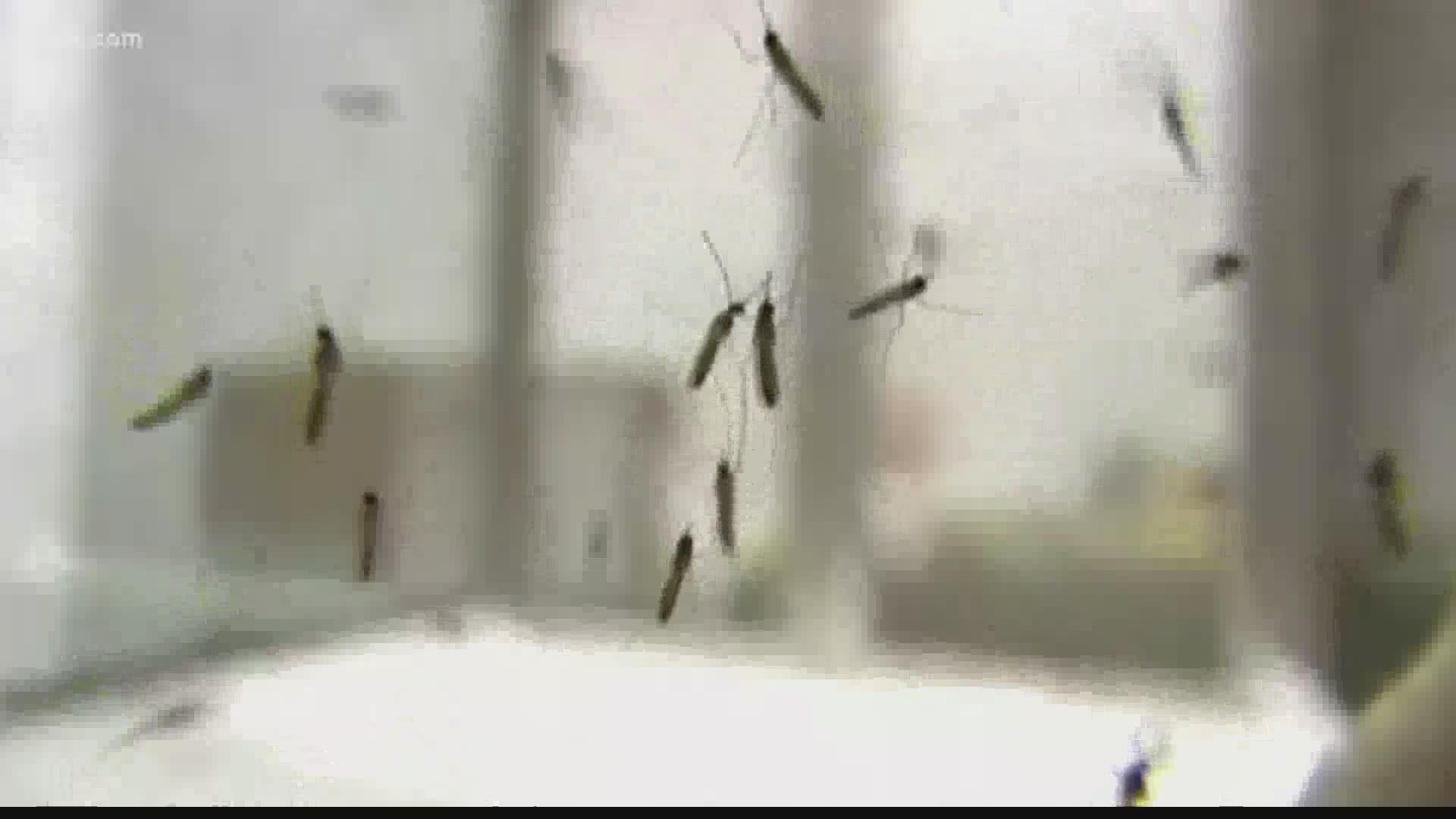EVANSTON, Ill. — It’s time for the yearly reminder about mosquitoes.
The Illinois Department of Public Health said it has confirmed the first mosquitoes to test positive for the West Nile virus this year.
According to a press release, North Shore Mosquito Abatement District collected the positive mosquito batch on June 5 in Evanston, a Chicago suburb.
No human cases of West Nile have been reported this year.
“While we continue to battle the COVID-19 pandemic, we must also remember to take steps to protect our health from other illnesses,” said Illinois Department of Public Health Director Dr. Ngozi Ezike. “Getting outdoors is a great way to combat being cooped up, but you need to take precautions to protect yourself from mosquitoes and the viruses they carry by wearing insect repellent and getting rid of standing water around your home.”
The public health department monitors for West Nile virus with laboratory tests for mosquito batches, dead crows, blue jays, robins and other perching birds, as well as testing sick horses and humans with West Nile virus-like symptoms.
People who see a sick or dying crow, blue jay, robin or other perching bird should contact their local health department, which will determine if the bird will be picked up for testing, the public health department said.
The first mosquitoes to test positive for West Nile virus in 2019 were collected on May 21, 2019 in Wayne, Illinois.
Last year, 46 counties in Illinois reported a West Nile virus positive mosquito batch, bird and/or human case. IDPH reported 28 human cases (although human cases are underreported), including one death.
WEST NILE TRANSMISSION & SYMPTOMS
West Nile virus is transmitted through the bite of a Culex pipiens mosquito, commonly called a house mosquito, that has picked up the virus by feeding on an infected bird.
Common symptoms include fever, nausea, headache and muscle aches. Symptoms may last from a few days to a few weeks.
Four out of five people infected with West Nile virus will not show any symptoms. In rare cases, severe illness including meningitis, encephalitis, or even death, can occur. People older than 60 and individuals with weakened immune systems are at higher risk for severe illness from West Nile virus.
Illinois Department of Public Health shared the following tips to ‘fight the bite’
• REDUCE - make sure doors and windows have tight-fitting screens. Repair or replace screens that have tears or other openings. Try to keep doors and windows shut. Eliminate, or refresh each week, all sources of standing water where mosquitoes can breed, including water in bird baths, ponds, flowerpots, wading pools, old tires, and any other containers.
• REPEL - when outdoors, wear shoes and socks, long pants and a light-colored, longsleeved shirt, and apply an EPA-registered insect repellent that contains DEET, picaridin, oil of lemon eucalyptus, or IR 3535 according to label instructions. Consult a physician before using repellents on infants.
• REPORT – report locations where you see water sitting stagnant for more than a week such as roadside ditches, flooded yards, and similar locations that may produce mosquitoes. The local health department or city government may be able to add larvicide to the water, which will kill any mosquito larvae.

